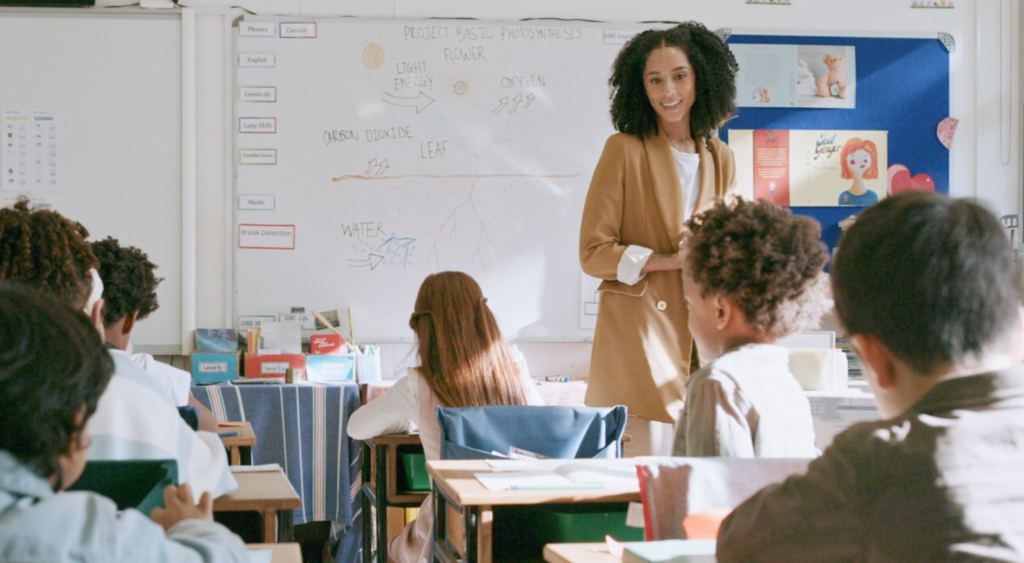Navigating an election year as a substitute teacher.

Whether you are a substitute teacher, tutor, or paraeducator, you might have concerns about navigating conversations involving politics, especially during an election year. The time and place for conversations involving matters of personal belief – such as politics, religion, or Santa Claus and the Tooth Fairy – is at home, between caregivers and their children.
In this post, we answer some questions that come up regarding politics in the school setting, including:
- What should an educator do when politics come up in class?
- How can you keep the conversation respectful?
- What are some go-to phrases to redirect or diffuse?
What should an educator do when politics come up in class?
The best approach for a substitute educator is to encourage students to discuss political topics with their families and then to redirect the conversation back to the lesson.
Your role as a substitute teacher is to teach the lesson plan and curriculum provided. You can do that most effectively by staying neutral and on task. If political conversations arise and are not related to the lesson plans, respectfully acknowledge students’ viewpoints and redirect to the lesson plan.
You could try:
- “Thanks for sharing, Emma. Now, let’s get back to math.”
- “Interesting thought, but we need to focus on geography right now, Aiden.”*
- “Let’s save that for later and stick to Ms. Cooper’s lesson.”
Remember:
- Don’t take sides.
- Don’t make judgments about students’ opinions.
- Don’t make sarcastic comments or use “just joking” inferences.
- Don’t wear politically focused clothing or accessories like pins or scarves on school grounds. (Even be aware of bumper stickers/decals on your vehicle).
- Do address bullying or discrimination between students promptly. Be aware that political topics can lead to bullying when students disagree. Do diffuse heated debates as quickly as possible.
- Do follow classroom rules that enhance respectful behavior and discussions.
- Do respectfully redirect conversations to maintain classroom focus.
Be mindful of your political voice on social media.
Remember, it’s a small world, and people often share what others post on social media. Be mindful of what type of political messages you’re posting and the example you’re setting.
Students and their families often research educators online. Social media posts that are controversial or too politically charged could hurt your credibility in the classroom. Consider adjusting your privacy settings on your social media accounts so that only individuals you want to see your posts can do so.
Refer to your employer’s or school district’s social media policies for direction on how to approach using social media as a substitute educator.
Work with Kelly Education.
During an election year, political discussions may arise naturally in the classroom. As a substitute teacher, it is crucial to approach these situations with a focus on neutrality, ensuring that personal biases do not influence the classroom environment.
By preparing to redirect political topics calmly, respectfully, and promptly back to the day’s lesson plan, you can keep classroom discussions educational and on track, thereby minimizing stress for both students and yourself.
Want to get more substitute teacher tips? From substitute teacher dress codes to what to bring on your first day and how to introduce yourself to the class, Kelly Education shares everything you need to know about substitute teaching. Check out all our career advice so you can confidently lead your class.

View Related: Article
You might like
What to wear as a male substitute teacher.
3 minute read
What to wear as a male substitute teacher.
3 minute read
Find your next job
Discover thousands of temporary, full-time, and remote jobs for beginning and experienced job seekers.


